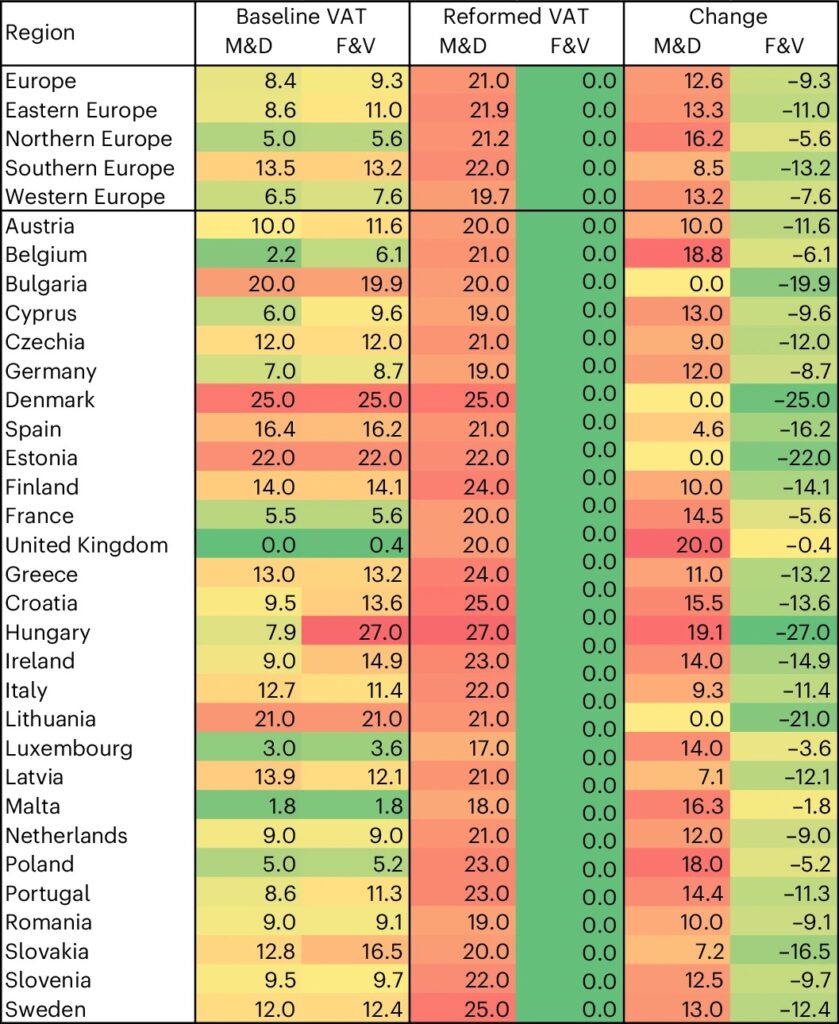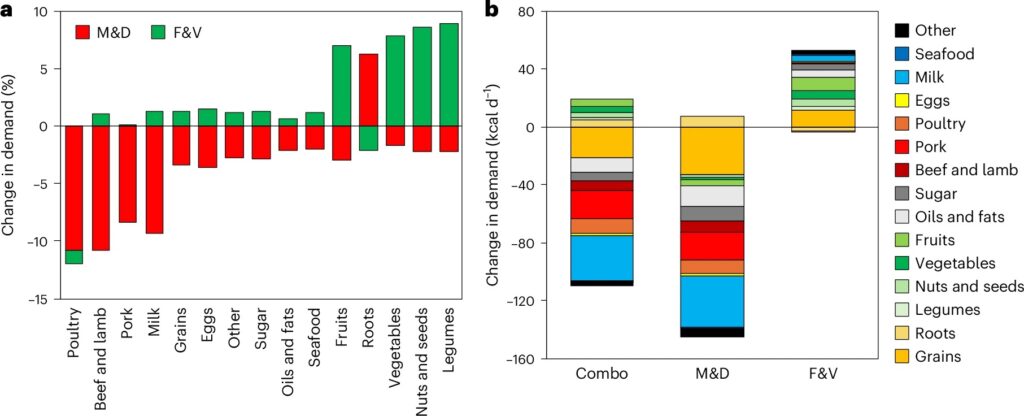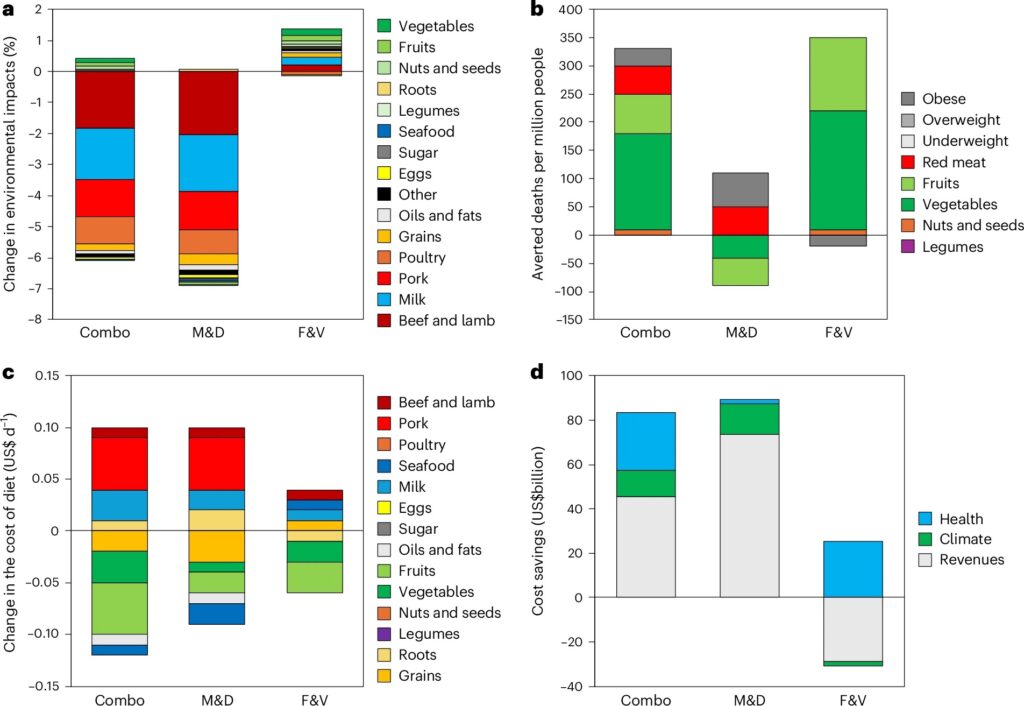Oxford VAT Study: Meat Taxes Could Benefit Public Health, Climate & Economy
4 Mins Read
Setting VAT rates based on the health and climate impacts of food can reduce diseases and deaths, lower emissions, and boost national economies, according to a University of Oxford study.
Meat taxes aren’t a new idea, but they’re increasingly cropping up in conversations around the future of agrifood policy, especially since Denmark’s historic announcement of its carbon levy on livestock farming.
Stakeholders have long debated the efficacy of a surcharge on meat, and the best way it could be implemented. A new study has a solution: consider the health, environmental and economic impacts of products to decide how much value-added tax (VAT) should be applied to them.
It would mean charging full levies on meat and dairy, and zero-rating fruits and vegetables, which researchers at the University of Oxford say would improve not just public health, it would bolster government revenues and help them decarbonise.
This approach is “as good as a no-loss policy gets”, according to Prof Marco Springmann from the university’s Environmental Change Institute and the Oxford Martin School. “When it comes to food, tax systems across the EU and the UK are currently not fit for purpose,” he said. “A modern tax system that addresses the critical health and environmental challenges of the food system is urgently needed.”
The economic benefits of a meat tax

The research, published in the Nature Food journal, collected data for foods from the EU and the UK to estimate the impacts of changes in VAT rates on these products. Currently, the average European VAT is 8% on meat and dairy and 9% on fruits and vegetables – two-thirds of countries charge higher taxes on produce than animal proteins.
On average, eliminating the tax on fruits and vegetables could boost their intake by about a portion per week, whilst applying the full rate to meat and dairy would reduce this by a portion a week in each case. Doing both would increase the prices of animal products by 13 percentage points, and lower the cost of produce by nine points.
Even so, the new diets were found to be similarly affordable, as the higher prices of meat and dairy would be offset by the demand for lower-priced fruits and vegetables.
That said, the VAT reform would generate more money for governments that can be used elsewhere. Food-related tax revenues would shoot up by a third (or $45B when adjusted for purchasing power parity), while climate change costs would be reduced by $12B due to lower emissions, and healthcare costs would fall by $26B.
Accounting for these climate and health costs, the overall economic benefits were highest in Poland and the UK (0.7-0.8% of national GDP). And limiting VAT reform to either levies on animal proteins or reduced surcharges on fruit and vegetables doesn’t work as well as the combined approach.

Saving lives, emissions, land, and water
Speaking of public and planetary health benefits, the study revealed that the suggested tax reform is associated with 170,000 fewer deaths from diet-related conditions like heart disease, stroke, cancer, and diabetes per year. Three-quarters of this decrease in mortality would stem from a higher intake of vegetables and fruits, while another 15% would be due to lower consumption of red meat.
Across Europe, the food system’s emissions would be reduced by 63 million tonnes (or 6%) with higher taxes on meat and dairy and zero-rated fruits and vegetables, while lowering land use by 71,000 sq km (6%) and freshwater consumption by 5%.
Most of these changes were associated with reductions in meat and dairy, including beef (32%), milk (29%), pork (22%), and poultry (15%). Here, too, the UK and Poland benefitted the most, with climate footprints lowered by 12% and 9%, respectively.

“The health improvements were primarily driven by reductions in VAT rates on fruits and vegetables, whereas most of the environmental and revenue benefits were driven by increased rates on meat and dairy,” the researchers wrote.
They suggested that this approach could also carry more favour among Europe’s lawmakers: “Politically, the benefits of addressing health and environmental objectives by changes in existing tax systems such as VAT are that they might be less contentious than introducing new and potentially more targeted instruments such as carbon prices.”
The University of Oxford study follows similar research published this month, which showed that a surcharge on meat could generate billions in revenue for the German government while cutting farm emissions by a quarter.



